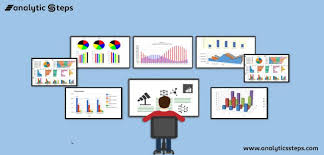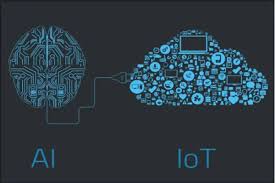The Power of Statistics and Data Analysis
In today’s data-driven world, the importance of statistics and data analysis cannot be overstated. From businesses making informed decisions to researchers uncovering valuable insights, statistics and data analysis play a crucial role in various fields.
Understanding Data
Data is everywhere, constantly being generated by various sources such as sensors, social media platforms, and business transactions. However, raw data alone is not useful unless it is processed and analysed to extract meaningful information. This is where statistics and data analysis come into play.
Uncovering Patterns and Trends
Statistics allows us to summarise and interpret large datasets by identifying patterns, trends, and relationships within the data. Through techniques such as regression analysis, hypothesis testing, and clustering, statisticians can extract valuable insights that help in decision-making processes.
Making Informed Decisions
Businesses rely on data analysis to make strategic decisions that drive growth and success. By analysing customer preferences, market trends, and operational performance metrics, companies can optimise their processes, improve customer satisfaction, and stay ahead of the competition.
Advancing Research
In research fields such as healthcare, social sciences, and environmental studies, statistics plays a vital role in drawing reliable conclusions from complex datasets. Researchers use statistical methods to analyse experimental results, validate hypotheses, and make evidence-based recommendations.
The Role of Data Scientists
Data scientists are professionals who specialise in statistical analysis and data interpretation. They possess a deep understanding of mathematical concepts and programming languages that enable them to extract meaningful insights from vast amounts of data. Data scientists are in high demand across industries for their ability to turn raw data into actionable intelligence.
Conclusion
Statistics and data analysis have become indispensable tools for navigating the complexities of the modern world. By harnessing the power of data through statistical methods, businesses can drive innovation, researchers can make groundbreaking discoveries, and society as a whole can benefit from evidence-based decision-making.
Five Key Benefits of Statistics and Data Analysis for Insightful Decision-Making
- Statistics and data analysis provide valuable insights for informed decision-making.
- They help businesses identify trends and patterns in data to improve efficiency and profitability.
- Data analysis enables researchers to draw reliable conclusions from complex datasets.
- Statistical methods validate hypotheses and support evidence-based recommendations in various fields.
- Data scientists play a crucial role in extracting actionable intelligence from large volumes of data.
Seven Challenges in Statistics and Data Analysis: Navigating Privacy, Bias, Complexity, and More
- Data Privacy Concerns
- Misinterpretation of Results
- Complexity
- Costly Tools
- Biased Data
- Over-reliance on Data
- Data Overload
Statistics and data analysis provide valuable insights for informed decision-making.
Statistics and data analysis play a crucial role in providing valuable insights that enable informed decision-making. By analysing data trends, patterns, and relationships, businesses, researchers, and organisations can make strategic choices based on evidence rather than intuition. This empirical approach not only enhances the accuracy of decisions but also helps in predicting future outcomes and identifying areas for improvement. Ultimately, statistics and data analysis empower individuals and entities to make informed choices that lead to more efficient operations, better outcomes, and overall success.
They help businesses identify trends and patterns in data to improve efficiency and profitability.
Statistics and data analysis play a crucial role in helping businesses identify trends and patterns within their data, ultimately leading to improved efficiency and profitability. By analysing large datasets, businesses can uncover valuable insights that allow them to streamline processes, make informed decisions, and adapt their strategies to changing market conditions. Identifying trends early on enables businesses to capitalise on opportunities, mitigate risks, and enhance overall performance, ultimately driving increased profitability and sustainable growth.
Data analysis enables researchers to draw reliable conclusions from complex datasets.
Data analysis plays a crucial role in enabling researchers to draw reliable conclusions from complex datasets. By applying statistical methods and techniques, researchers can uncover patterns, trends, and relationships within the data that may not be immediately apparent. This process allows them to make informed decisions, validate hypotheses, and generate meaningful insights that contribute to the advancement of knowledge in various fields. The ability to extract valuable information from large and intricate datasets through data analysis empowers researchers to conduct rigorous studies and produce reliable results that have a significant impact on their respective areas of research.
Statistical methods validate hypotheses and support evidence-based recommendations in various fields.
Statistical methods serve a critical role in validating hypotheses and providing support for evidence-based recommendations across a wide range of fields. By applying statistical analysis to research data, researchers can confidently draw conclusions, identify patterns, and make informed decisions. Whether in healthcare, social sciences, economics, or any other discipline, the rigorous nature of statistical methods ensures that findings are reliable and robust. This validation process not only strengthens the credibility of research outcomes but also contributes to the advancement of knowledge and the development of effective strategies in diverse sectors.
Data scientists play a crucial role in extracting actionable intelligence from large volumes of data.
Data scientists are instrumental in unlocking valuable insights from vast datasets, playing a pivotal role in transforming raw data into actionable intelligence. By applying advanced statistical techniques and leveraging their expertise in data analysis, data scientists can distil complex information into meaningful findings that drive informed decision-making and strategic planning. Their ability to sift through large volumes of data, identify patterns, trends, and correlations, and extract actionable recommendations is essential for businesses looking to gain a competitive edge in today’s data-driven landscape.
Data Privacy Concerns
Data analysis, while offering valuable insights, raises significant concerns regarding data privacy and security. With the abundance of sensitive information being processed and analysed, there is a growing apprehension about potential breaches and misuse of personal data. As organisations collect vast amounts of data for analysis, ensuring the protection of individuals’ privacy becomes paramount. Striking a balance between extracting meaningful insights from data and safeguarding privacy rights remains a critical challenge in the realm of statistics and data analysis.
Misinterpretation of Results
Misinterpretation of statistical results poses a significant con in the field of statistics and data analysis. Incorrect analysis or misinterpretation of statistical findings can result in flawed conclusions and misguided decisions. When data is not analysed accurately or interpreted correctly, it can lead to unreliable insights and potentially harmful actions based on erroneous information. It is crucial for professionals working with data to exercise caution, adhere to rigorous analytical methods, and ensure that statistical findings are interpreted accurately to avoid the pitfalls of misinterpretation.
Complexity
Statistics and data analysis present a significant challenge in terms of complexity, as they demand specialised skills and knowledge to accurately interpret and apply. The intricacies of statistical methods and data analysis techniques can be daunting, often requiring a deep understanding of mathematical concepts and programming languages. Without the necessary expertise, individuals may struggle to derive meaningful insights from data, leading to misinterpretations or erroneous conclusions. The complexity of statistics underscores the importance of seeking assistance from qualified professionals or investing in training to ensure accurate and reliable data analysis.
Costly Tools
One significant drawback of statistics and data analysis is the cost associated with advanced statistical software and tools. These tools can be prohibitively expensive, posing a challenge for smaller businesses or individuals who may not have the financial resources to invest in such technology. The high costs of acquiring and maintaining these tools can create barriers to entry, limiting access to powerful data analysis capabilities that could otherwise drive growth and innovation. As a result, affordability remains a key concern for those looking to leverage the benefits of statistics and data analysis in their operations.
Biased Data
Biased Data poses a significant challenge in statistics and data analysis as it introduces distortions that can compromise the integrity of the findings. When biases exist in the data collection process, whether due to sampling errors, measurement inaccuracies, or subjective interpretations, the resulting analyses may not reflect the true nature of the phenomenon under study. This can lead to misleading conclusions and unreliable insights, ultimately impacting decision-making processes based on flawed or incomplete information. Addressing and mitigating biases in data collection is crucial to ensuring the validity and accuracy of statistical analyses and deriving meaningful insights from the data.
Over-reliance on Data
Over-reliance on data analysis poses a significant con in decision-making processes as it can stifle creativity and intuition. While data provides valuable insights and guidance, solely relying on statistical analysis without considering other factors may lead to overlooking crucial qualitative aspects that cannot be quantified. Creativity and intuition play a vital role in innovative problem-solving and strategic thinking, aspects that data alone may not capture. It is essential to strike a balance between data-driven decisions and human judgement to ensure a holistic approach that incorporates both analytical rigour and creative thinking for optimal outcomes.
Data Overload
Data Overload is a significant con of statistics and data analysis. When faced with large volumes of data, individuals and organisations can easily become overwhelmed by the sheer amount of information available. This can result in information overload, making it challenging to sift through the data to identify relevant patterns and insights. The abundance of data can lead to confusion, inefficiency, and ultimately hinder decision-making processes. Managing data overload requires robust strategies for filtering, organising, and prioritising information to extract meaningful insights effectively.






